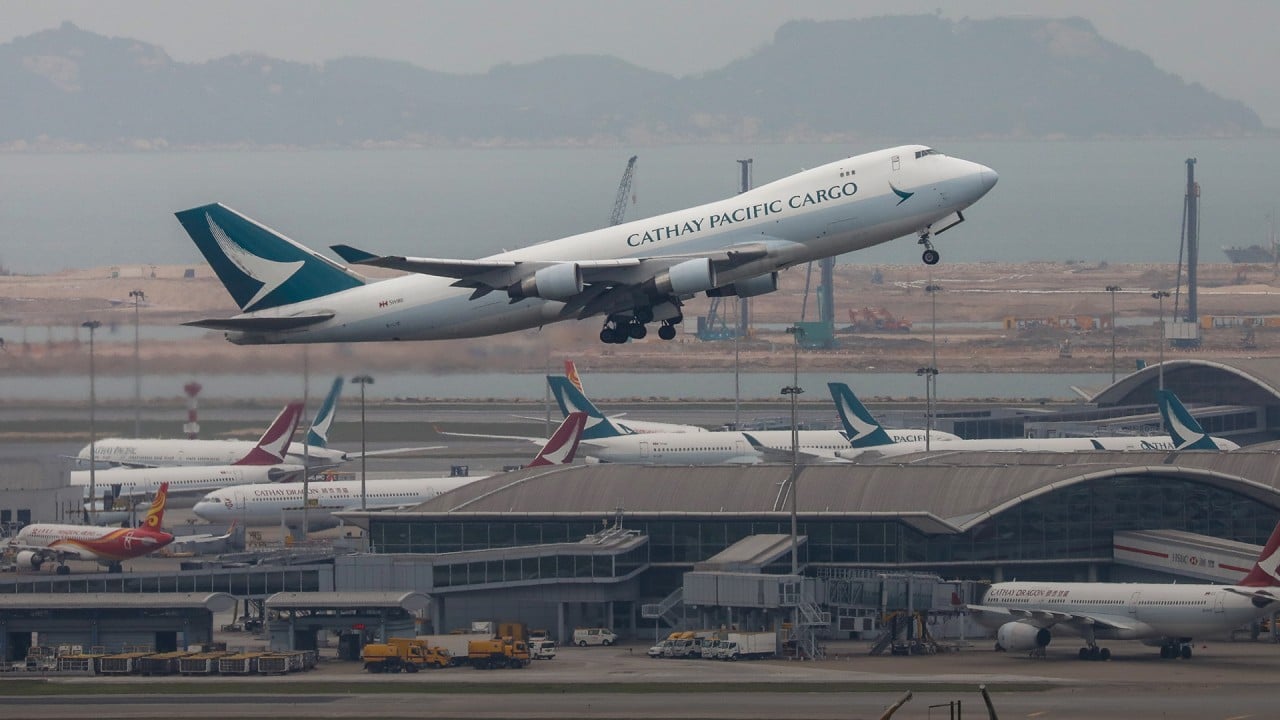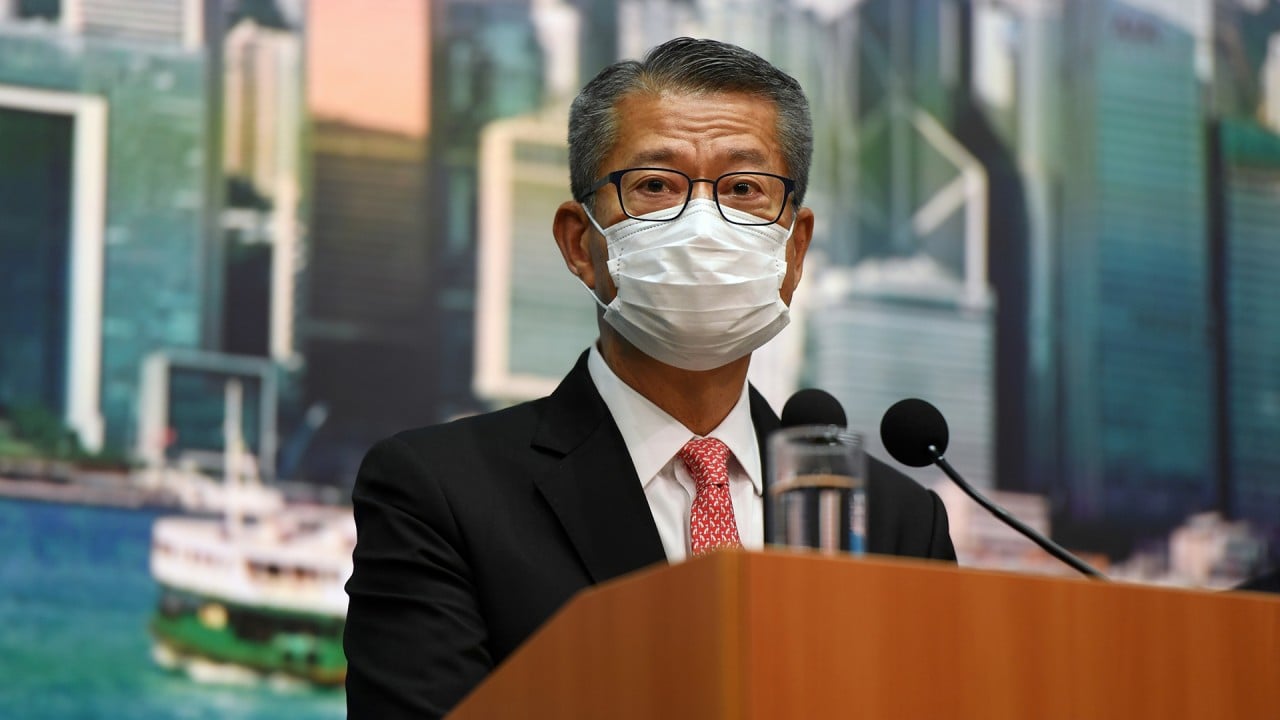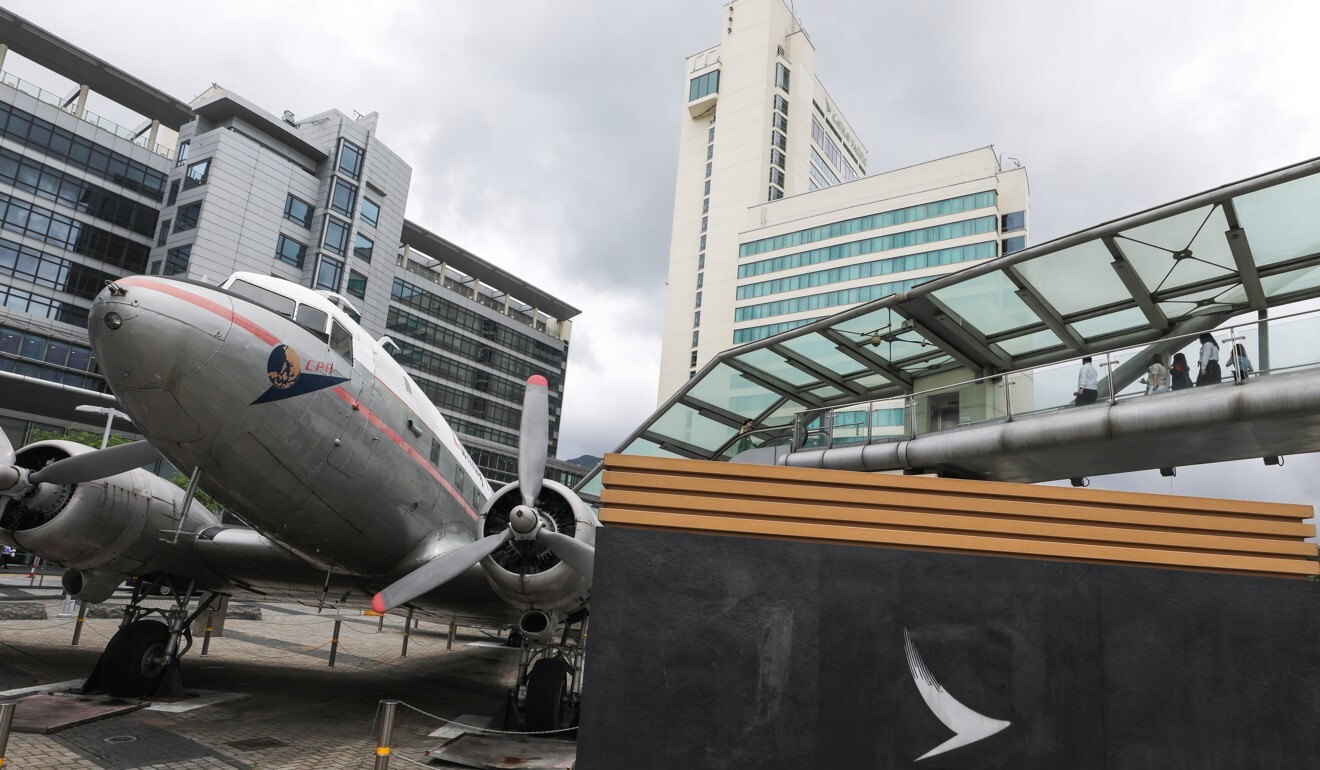
Exclusive | Two observers to join Cathay Pacific’s board in weeks as Hong Kong government’s ‘eyes and ears’, finance minister reveals as part of bailout of ailing carrier
- Paul Chan says both members will play an oversight role and not interfere with carrier, with a mandate to protect government’s interests
- Move is not related to relationship between the company and mainland China, according to financial secretary
Cathay Pacific Airways will have two government-appointed observers on its board in the coming weeks who will be the administration’s “eyes and ears”, Hong Kong’s financial secretary said on Thursday as he revealed more details of an unprecedented multibillion-dollar bailout of the city’s flag carrier.
Chan announced on Tuesday that under the airline’s HK$39 billion (US$5 billion) recapitalisation plan, the government would provide a lifeline of HK$27.3 billion that would grow into a 6.08 per cent stake when all shares were fully exercised.

01:29
Hong Kong government to bail out Cathay Pacific with HK$30 billion in loans and direct stake
He added that to ensure the carrier would safeguard public interest after the government’s direct investment, authorities had already started approaching potential candidates as observers, who should be seasoned professionals or business leaders in the private sector. The process will be completed within weeks.
“They will play an oversight role and will be the government’s eyes and ears, but they will not interfere with the firm,” Chan said, adding that the personnel would report to the administration regularly and enjoy rights such as being non-executive directors except for the ability to vote.
“Apart from having meetings or receiving papers, when they have any inquiries and want to learn more, they can directly approach management staff who have an obligation to answer them ... Their mandate is to protect government’s interests.”
Hong Kong’s Executive Council fully backed Cathay Pacific bailout, member says
Chan said it was not a must but desirable for the observers to have experience in the aviation business, adding they would need to command public confidence to hold the position.
But before an appointment, the firm still has to undergo an extraordinary general meeting, scheduled for July 13.

01:27
HK$30 billion bailout for Cathay Pacific is necessary, Hong Kong government says
Cathay bailed out to ‘protect Hong Kong’s role as global aviation hub’
But Chan said the relationship between the mainland and the firm was not under the government’s consideration and officials had no intention to interfere in such deliberations.
“On the relationship between Cathay and the mainland, they will have to think about it as a business. From our perspective, when we offered help, this is not under our consideration, and we also have no intention to interfere,” he said.
“It’s still about the company, it has to consider its future.”

Under the latest deal, the government will create a new company called Aviation 2020 to buy HK$19.5 billion (US$2.5 billion) in preferential shares – equity with restricted voting rights – and warrants for as much as another HK$1.95 billion purchase of shares later. It will also offer a HK$7.8 billion bridging loan. The size of the government’s deal could eventually rise to HK$29.2 billion, according to the airline.
Existing shareholders Swire Pacific, Air China and Qatar Airways will subscribe to a fresh HK$11.7 billion rights issue, which will dilute their stake, but ultimately leave Swire with 42.26 per cent, Air China 28.17 per cent and Qatar Airways 9.38 per cent.
The rescue will be financed by the Land Fund, which is managed under the Exchange Fund. It is expected to be a medium-term investment, with an expected internal rate of return of between 4 and 7.5 per cent, higher than the Exchange Fund’s 3.7 average over the past six years.

Asked if the government was too optimistic about the airline’s future, Chan said: “We don’t have an illusion that it will recover quickly. It will take time.”
He said the warrants were to allow the government to potentially earn more benefits when the business improved, but there were no targeted buyers for these, addressing some public concerns that the government might sell its stakes to the other major shareholder, Air China, later.
On Swire’s undertaking of maintaining its role as the controlling shareholder, Chan said the decision was not just about a business transaction but also a commitment to ensure that a key industry could survive in the city.

“[We] hope to let everyone understand clearly that under ‘one country, two systems’, as this firm has been established in Hong Kong for a long time and is an essential player in a pillar industry, we will help it during a market failure ... regardless of where its capital comes from,” he said.
Chan maintained that the administration only considered a rescue package on the basis Cathay was at the centre of a “systematically important pillar industry” and its collapse would affect the city’s economy and employment significantly.
“If you comb through [the private market] with these criteria, the chance is so slim,” he said. “We do not make such decisions easily.”
Cathay rescue seen as win for both airline and Hong Kong
He said the city positioned itself as an international aviation hub with edges such as a wide coverage network and good flight time for travellers. But it also faces competition from other major airports in the Greater Bay Area where space is allowed for them to increase capacity.
“[Hong Kong’s status as an aviation hub] supports us as an international financial centre,” he said.
The government wanted to exit Cathay as soon as possible, he added, but a concrete date was not given for greater flexibility. However, the administration and Cathay both expect the airline will pay back its bailout package within three to five years.
“Hong Kong is a very small economy subject to the influence of external factors ... An economic recovery is not usually entirely controllable,” he said.

But Chan did not specify any red lines on how the firm should restructure, including whether it could lay off staff. He said Cathay had to be viable and competitive to survive on its own, instead of relying on the government.
Potential operational changes such as cutbacks on routes or flights would depend on the airline’s interests and supervision by the Air Transport Licensing Authority, Chan said.
Cathay was one of the first and worst hit airlines from Covid-19, which has triggered an unprecedented catastrophe for air travel. The group’s daily passenger volume collapsed 99 per cent and its 238-strong fleet has been grounded for months.
The airline has been burning up to HK$3 billion a month since February and lost HK$4.5 billion in the first four months of the year.


